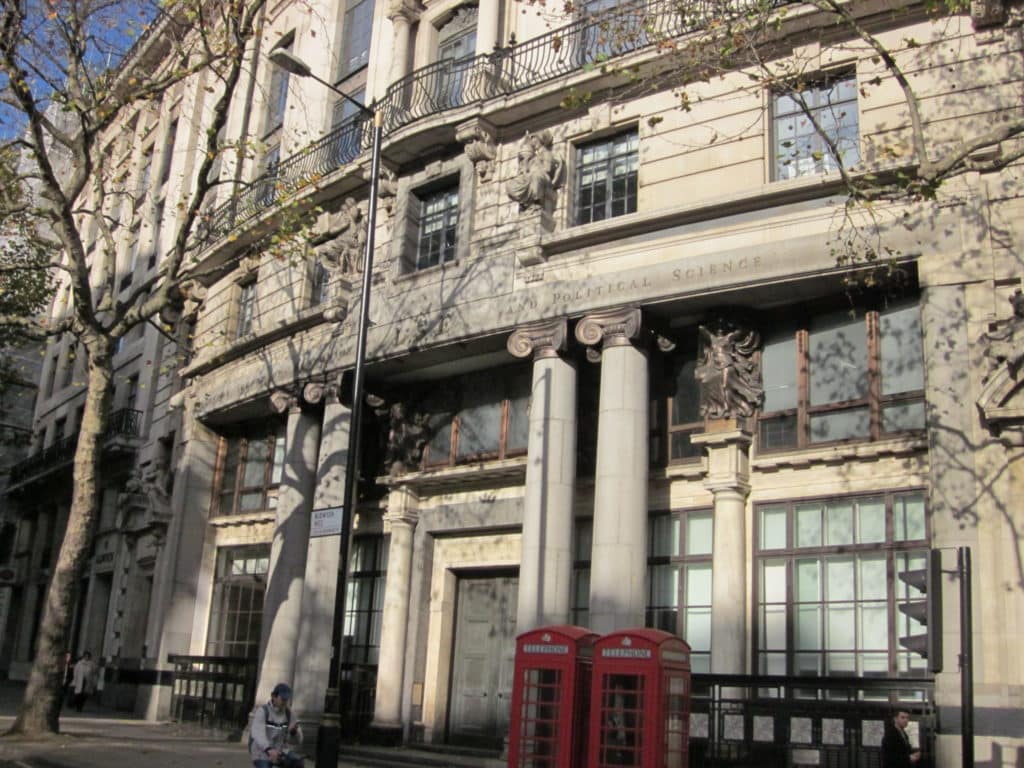I’ve been receiving emails regarding the GPPN Dual Degree program between the LSE and Columbia SIPA that I am pursuing. In the interest of sharing information, here’s some key considerations:
If you are at LSE and looking to apply to do your 2nd year at Columbia:

Application is generally due during early February and you hear back in early March. The process is simple – just four short essays. Three of the essays is likely to be exactly as they are for next year’s incoming SIPA applicants. And then, there is typically a question similar to “If you could have dinner with anyone dead or alive, whom would it be?”. It’s important to note that since LSE doesn’t have grades until the end of the year, these essays are the only thing that really sets you apart from the rest. You are competing against others who are already at the LSE, so obviously you are all already of a certain caliber. Therefore, the fact I was accepted into SIPA originally for the MPA mattered none. I still slaved and agonized over these essays for days. There must have been at least 5 drafts of each. I am fairly certain that I spent more energy on these essays than anything else I did at the LSE.
Why the fuss? Well, it can be rather competitive. Last year, I believe there were 19 applicants and 7 offers. Historically, it’s about 1/3 probability. I believe it depends on supply and demand. The number of spots available is determined by how many people want to come to the LSE. There may be other factors involved in the available spots, but I know this is the main one. I don’t work in the Admissions Committee, so I haven no idea what works. But I think the same rules apply for any essays: more is NOT better. Judging by the student body at SIPA, I would say highlighting previous experiences and how they motivate your wish to study at SIPA is probably more important than academic achievements. My observation is that SIPA is training people to become practitioners, not academics.
Once you do get the offer, you will immediately need to think about courses as pre-registration for the fall semester opens in the spring and courses can fill very quickly at SIPA. Your courses at the LSE will count for some of the core classes at SIPA. Basically, you will need to complete all requirements that a normal two-year SIPA student needs to complete. EC440 will count for the year long Economics classes. EC455 will count for Quantitative Analysis. GV478 will count for Politics of Policy-making. I was doing International Development, so DV441 counted for the Management requirement. If you are serious about coming to SIPA, you can plan your courses that will count, in the event that you do get in, that will give you more flexibility to take classes at SIPA. I also had LL484 Regulations of Financial Markets to count as International Banking at SIPA. In some ways, going from LSE-SIPA shortchanged me on class options since most year-long classes only counted for semester-long classes at SIPA.
Beyond the above requirements that can be satisfied from LSE courses, you are still require to take a financial management class, a professional development seminar, capstone and internship. In addition, everyone is required to pursue a concentration and a specialization. Depending on the track you choose to take, the number of required classes varies. For more information regarding requirements, refer to SIPA Academics.
For anyone considering GPPN Dual Degree between LSE/SIPA:

One great advantage about SIPA is its student body size and a wide variety of student groups within SIPA itself, completely independent from Columbia University. LSE has a number of societies, but they are usually mixed with undergrads. The student groups at SIPA host a number of events and some have insane amount of money in their budget, ranging well into thousands of dollars. Serving on a board in one of these groups give you all sorts of experience to answer those “behavior questions” you face in interviews.
Caveat: the boards run from spring to fall semester between students first and second year. Thus, as a dual degree student, I was excluded from able to serve on any board. This is not to say I am excluded from participating or becoming involved, but it greatly diminishes the leadership opportunities.
The other potential difficulty is the social life. Since there is only a handful of dual degree students, you tend to fall into a strange lot that doesn’t quite fit with the first year, but most of the 2nd year already have pre-established social circle. I already had a lot of friends in New York, so this is less of an issue for me. I have heard this is a general issue to keep in mind for any dual degree students. The upside is that if you can overcome the difficulty, you walk away after the two years with a massive network of contacts from all over the world.
Academically, the LSE is much more in depth and challenging. The nature of the programs are different. LSE is much more academic. SIPA is much more practical. LSE is all about independent learning and one huge exam at the end of the year for most classes. At SIPA, classes are only one-semester long and there are assignments/projects/papers due constantly. You can think of it as a strength vs. endurance. To me, academic is all there is at the LSE. Extracurricular mattered very little. At SIPA, to get the full experience, soft skills are important, the professional development events consume your life, as well as extracurricular activities. If you come to SIPA only to excel at academics, then you really would not get your money’s worth. Personally, I love SIPA. But, we all know how the LSE and the British system in general perplexes me.
If I could do it over, I likely would have gone to SIPA in the first place and stayed there for two years. Having two degrees on the resume is a nice plus, but the experience itself lacks continuity. Since the GPPN dual degree comprises of only a handful of people in all schools, there doesn’t really exist a very good structure to help the integration. Having to learn the entire system and politics of school each year can be really frustrating. At the end of the day, it depends on what you are after and prefer. As always, there are pros and cons to all things and each decision depends on which way the balance tilts.
Good luck with your decision!








Hey Wendy,
Much like you, I am also an American ex-pat living abroad, though my focus has been a bit more euro-centric. I’m currently looking at graduate schools in an obsessive albeit slightly schitzo way, with interests from 1 year econ courses followed by 1 year IR courses, to public policy and international relations. Basically I would like to acquire the necessary skills in economics, policy, and politics, and after working a bit more (preferably in international organizations) bring them home to help improve my hometown of New Orleans. Recently I became intrigued by the MPA at LSE, though after reading your blog posts on it I am a bit turned away by the highly theoretical nature of it, as well as the constraints of the British system. A couple of questions:
How applicable have the two sides of your education (LSE vs. SIPA) been since you graduated. Do you think one has helped you more than the other? Any aspects from one you felt were especially lacking in the other?
Does the LSE/Columbia brand carry enough weight to be worth the cost?
How did you go about paying for all of this?
Basically I want to know if the cost of the two schools was worth the brand and the education. I went to a top 20 undergraduate in the U.S. that was around 50k/yr. Luckily I had my parents to help me out (as well as a large scholarship). After living in Europe and seeing the cost of higher education elsewhere I find it a bit hard to shell out so much for a degree (for instance the MOST expensive programs on the continent cost 14k euros a year). Almost to the point where I want to take a moral stand against it…
Any help you could give me on this would be great! Look forward to hearing from you.
P.S. Sorry for posting all of this, but I just couldn’t figure out how to message you directly
Hello! Thanks for your message. The question of whether the pricey degree is worth it is definitely a personal call. I think it has been worth it, especially since I didn’t attend a brand name school for undergrad. I paid (am still paying) for the degree with a mixture of loans and scholarships. One of the advantages of staying at one place for the degree is you also are eligible for better scholarship opportunities.
I personally feel that my education from SIPA has been much more applicable since I left, but that doesn’t seem to be why Europeans go to these kind of programs. They go for the academic rigor and they don’t expect the material to be directly useful beyond graduation. This is an important aspect to keep in mind as you pick your programs. Do you love theory and academic for the sake of it? I didn’t, and I struggled.
Hope this helps a bit. If you have any other questions, feel free to email me at [email protected]. Good luck!